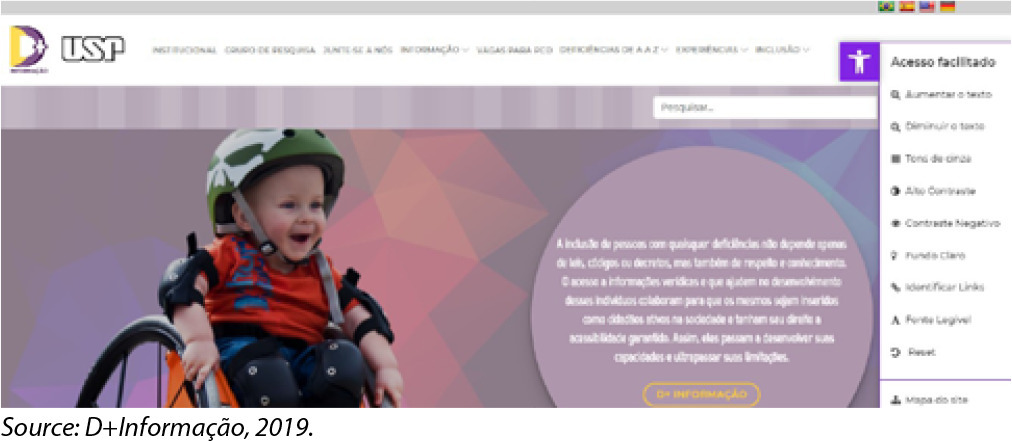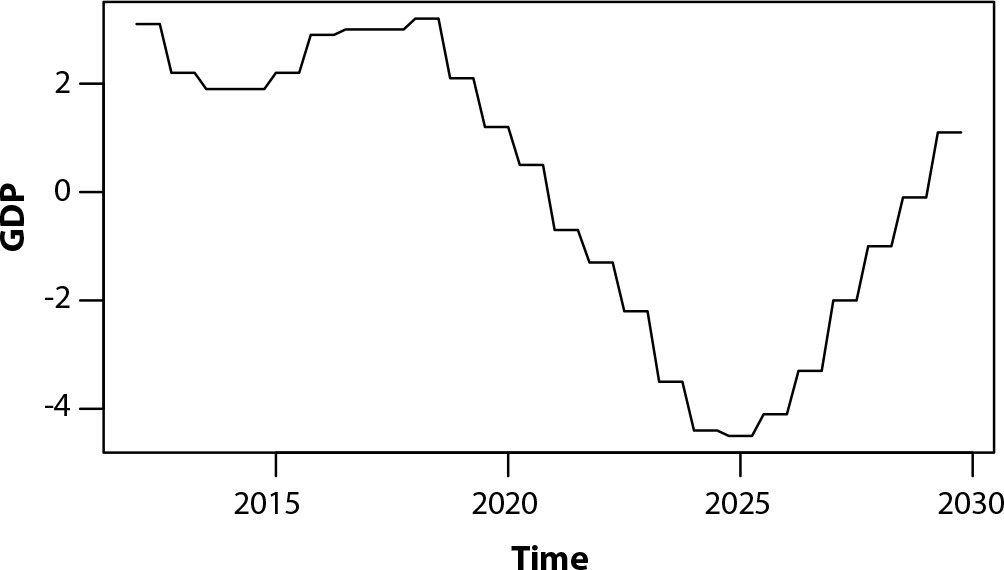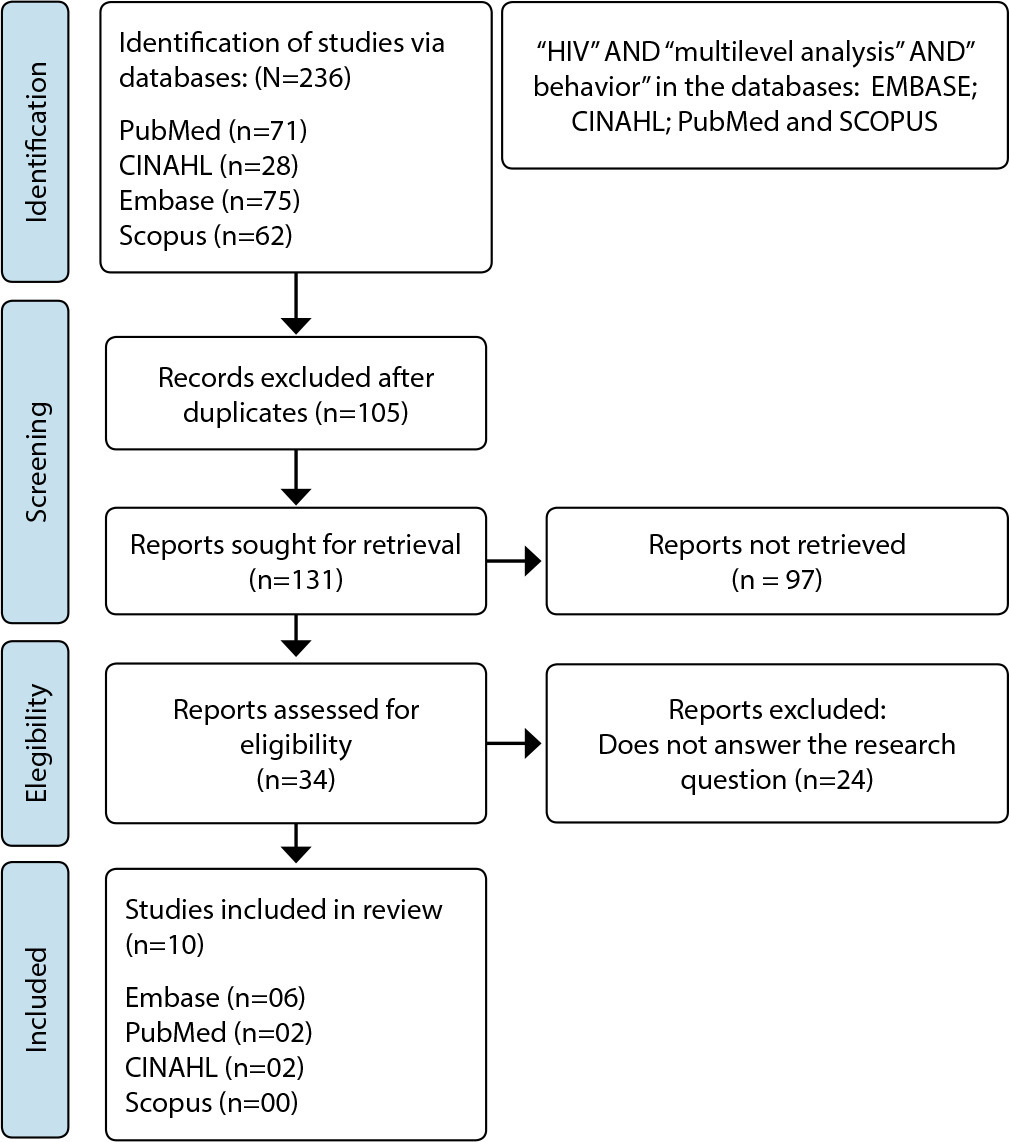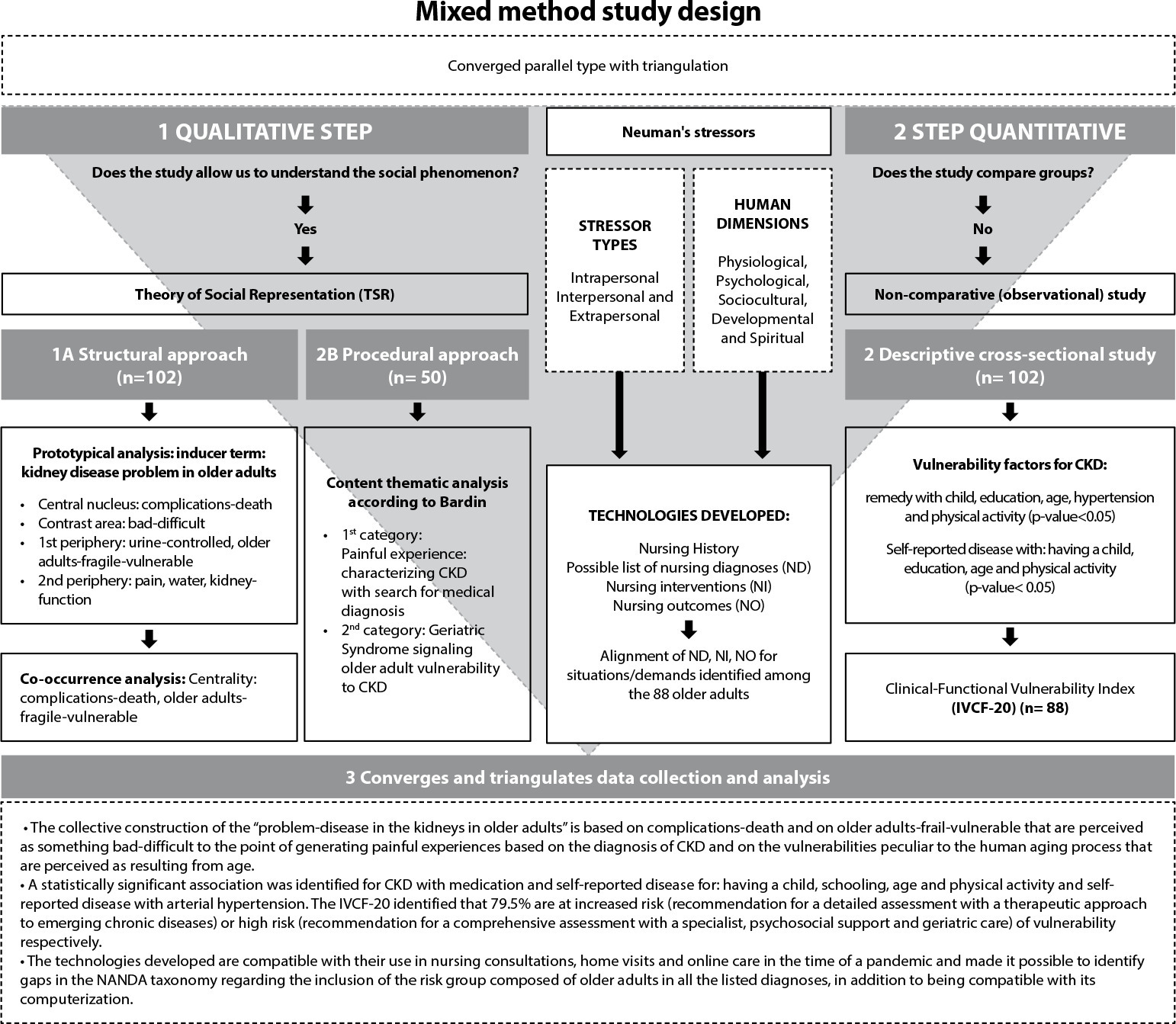-
ORIGINAL ARTICLE12-16-2024
Construction and validation of an educational game on biosafety in the central sterile supply department
Revista Brasileira de Enfermagem. 2024;77(6):e20230478
Abstract
ORIGINAL ARTICLEConstruction and validation of an educational game on biosafety in the central sterile supply department
Revista Brasileira de Enfermagem. 2024;77(6):e20230478
DOI 10.1590/0034-7167-2023-0478
Views0See moreABSTRACT
Objectives:
to construct and validate an educational game on biosafety in the Central Sterile Supply Department of a hospital in Curitiba, PR.
Methods:
the study was conducted using a quantitative approach, employing applied and technological research with an exploratory design. The process was divided into six stages, from the definition of the theme to the validation and application of the game. The study was carried out from May to August 2022, involving 17 nursing professionals from a Central Sterile Supply Department during day and night shifts, as well as 9 judges.
Results:
the study resulted in the construction of a board game named by the authors as “My Health First.”
Conclusions:
the research achieved its objective of constructing and validating an educational game. By reflecting on professional practice and correlating the occupational risks present, the professionals were able to list safe actions, identify problems, and seek solutions.

-
ORIGINAL ARTICLE12-16-2024
Health literacy development of Primary Health Care patients: qualitative research
Revista Brasileira de Enfermagem. 2024;77(6):e20240154
Abstract
ORIGINAL ARTICLEHealth literacy development of Primary Health Care patients: qualitative research
Revista Brasileira de Enfermagem. 2024;77(6):e20240154
DOI 10.1590/0034-7167-2024-0154
Views0See moreABSTRACT
Objectives:
to identify the process of health literacy development among primary care patients, relating it to their self-care practices.
Methods:
qualitative, prospective research with 22 patients from two Family Health Strategy units. Data were obtained through individual semi-structured interviews, examined through descriptive statistics and thematic content analysis.
Results:
the results discuss how participants learn about health and how this resonates in their behaviors, culminating in two thematic categories: “Health knowledge construction”; and “Dialogue between health knowledge construction and patient care actions”.
Final Considerations:
health knowledge is developed mainly through interpersonal relationships, mediated by health professionals through bonding and communication. Community educational actions and training of health professionals in communication can promote health literacy and self-care among patients.

-
ORIGINAL ARTICLE12-16-2024
Analysis of omission of antimicrobial doses in Intensive Care Units
Revista Brasileira de Enfermagem. 2024;77(6):e20240102
Abstract
ORIGINAL ARTICLEAnalysis of omission of antimicrobial doses in Intensive Care Units
Revista Brasileira de Enfermagem. 2024;77(6):e20240102
DOI 10.1590/0034-7167-2024-0102
Views0See moreABSTRACT
Objectives:
to analyze the rate of antimicrobial dose omission in intensive care units.
Methods:
cross-sectional study carried out between March 1 and September 30, 2023, in intensive care units of a University Hospital in Rio de Janeiro.
Results:
the sample consisted of 452 prescriptions and 1467 antimicrobial doses. The dose omission rate was 4.29%. Each antimicrobial prescribed increased the chance of omission by 51%. The strategy of double-checking prescriptions helped prevent 30% of antimicrobial dose omissions (p=0.0001).
Conclusions:
monitoring the omission of antimicrobial doses can guide nursing actions to improve quality and patient safety, contributing to the prevention of medication errors, antimicrobial stewardship and the fight against antimicrobial resistance.
-
REVIEW12-16-2024
Recommendations for guidelines for promoting mental health in the workplace: an umbrella review
Revista Brasileira de Enfermagem. 2024;77(6):e20240086
Abstract
REVIEWRecommendations for guidelines for promoting mental health in the workplace: an umbrella review
Revista Brasileira de Enfermagem. 2024;77(6):e20240086
DOI 10.1590/0034-7167-2024-0086
Views1See moreABSTRACT
Objectives:
to summarize the recommendations of guidelines for promoting mental health in the workplace.
Methods:
an umbrella review, according to Joanna Briggs Institute and Preferred Reporting Items for Systematic reviews and Meta-Analyses methodological assumptions. Data collection was carried out in January 2021 and updated in July 2023 in the American Psychological Association, Cochrane Library, EMBASE, National Library of Medicine, and Scopus databases. Systematic reviews that assessed guidelines with recommendations for mental health care for workers were included. PROSPERO registration CRD42023461845.
Results:
four systematic reviews published between 2015 and 2018 were identified. The abstracts highlighted actions that facilitate and inhibit the recommendations as well as three categories of intervention: primary prevention – worker protection; secondary prevention – promoting workers’ mental health; and tertiary prevention – supporting, monitoring and rehabilitating workers upon returning to work.
Conclusions:
the interventions are based on prevention, promotion and early recognition, support and rehabilitation of mental health problems.

-
ORIGINAL ARTICLE12-16-2024
Psychometric analysis of ProQOL-BR in nursing: building hospital safety and protection
Revista Brasileira de Enfermagem. 2024;77(6):e20240085
Abstract
ORIGINAL ARTICLEPsychometric analysis of ProQOL-BR in nursing: building hospital safety and protection
Revista Brasileira de Enfermagem. 2024;77(6):e20240085
DOI 10.1590/0034-7167-2024-0085
Views0See moreABSTRACT
Objectives:
to analyze the psychometric properties of the ProQOL-BR instrument in hospital nursing professionals.
Methods:
a methodological study to validate the ProQOL-BR. Confirmatory factor analysis, assessment of local and global adjustment quality, Pearson hypothesis testing and Cronbach’s alpha internal consistency analysis were used.
Results:
a total of 490 professionals participated. The model presents adequate quality due to factor weights (λ≥ 0.40), acceptable overall fit quality and adequate chi-square ratio and degrees of freedom (χ2/g.1=2.51) for the parameters of CFI (0.923), GFI (0.902), TLI (0.914) and RMSEA (0.042). In terms of validity, it was shown to be adequate with CC=0.89. The internal consistency obtained by standardized Cronbach’s alpha was 0.761. Criterion validity was shown to be favorable with significant correlations (0.001).
Conclusions:
the instrument was validated regarding content, criteria and reliability. Three questions were removed from the original instrument, ProQOL-BR, leaving the final instrument with 25 questions.

-
12-16-2024
GerenciaDOR™: development of digital technology by nurses for the assessment of patients with chronic pain
Revista Brasileira de Enfermagem. 2024;77(6):e20240050
Abstract
GerenciaDOR™: development of digital technology by nurses for the assessment of patients with chronic pain
Revista Brasileira de Enfermagem. 2024;77(6):e20240050
DOI 10.1590/0034-7167-2024-0050
Views0See moreABSTRACT
Objectives:
to develop a digital technological solution (prototype) for assessing patients with chronic pain.
Methods:
this is a methodological and technological development study based on the Human-Centered Design framework and the principles of Patient-Centered Care. The prototype guides patients through a body diagram and directs them to an evaluation using specific instruments that address the multidimensional aspects of chronic pain.
Results:
the GerenciaDOR* project enables navigation through the Web App screens, providing access to pain assessment features up to the presentation of results.
Final Considerations:
the study describes a systematic approach to pain assessment and expands nurses’ knowledge in pain management. Additionally, it can promote the development of other digital technologies for chronic pain assessment and contribute to a multidisciplinary, patient centered treatment.

-
ORIGINAL ARTICLE12-16-2024
Respectful care for postpartum women with sickle cell disease: a netnographic study
Revista Brasileira de Enfermagem. 2024;77(6):e20230545
Abstract
ORIGINAL ARTICLERespectful care for postpartum women with sickle cell disease: a netnographic study
Revista Brasileira de Enfermagem. 2024;77(6):e20230545
DOI 10.1590/0034-7167-2023-0545
Views1See moreABSTRACT
Objectives:
to analyze principles of respectful maternity care in narratives of postpartum women with sickle cell disease, relating them to Sustainable Development Goals.
Methods:
netnographic study, with two videos published in 2020. Deductive iconographic and thematic analysis by Respectful Maternity Care Charter, organized in MAXQDA.
Results:
principles identified were the right to: freedom from harm and ill-treatment; information, informed consent, refusal of medical procedures, and respect for their choices and preferences including companion; be considered a person from birth, with dignified and respectful treatment; health at the highest possible level; newborns being with their parents or guardians. The Sustainable Development Goals for women by 2030 were not positively contemplated in postpartum women’s experience.
Final Considerations:
it is appropriate that health workers qualify themselves to provide respectful maternity care, with qualified listening, understanding, and resolution of unique demands of postpartum women with sickle cell disease, seeking equality in care for women.

-
REVIEW12-16-2024
Strategies for expanding vaccination coverage in children in Brazil: systematic literature review
Revista Brasileira de Enfermagem. 2024;77(6):e20230343
Abstract
REVIEWStrategies for expanding vaccination coverage in children in Brazil: systematic literature review
Revista Brasileira de Enfermagem. 2024;77(6):e20230343
DOI 10.1590/0034-7167-2023-0343
Views1See moreABSTRACT
Objectives:
to identify the strategies found in the literature for increasing vaccination coverage among children in Brazil. It is justified mainly by the current scenario of falling vaccination coverage.
Methods:
systematic literature review. The search was carried out in the Pubmed (MEDLINE), Embase and Scopus databases, following the PRISMA guidelines.
Results:
initially, 4,824 results were returned. In the end, 6 studies were included for narrative synthesis using the SWiM methodology. Of these, 50% dealt with studies related to the Bolsa Família Program (PBF). The others explored strategies for approaching parents directly, Rapid Vaccination Monitoring (MRV) and the Community Health Agents Program (PACS). The PBF did not guarantee compliance with the conditionality of keeping vaccinations up to date. The MRV and PACS are effective strategies, especially because they allow active search for absentees.
Conclusions:
we conclude that more publications are needed on strategies to increase vaccination coverage among children in Brazil.

-
ORIGINAL ARTICLE01-14-2022
Hospital structure elements demarcating (in)visibilities of institutional violence against children
Revista Brasileira de Enfermagem. 2022;75:e20200785
Abstract
ORIGINAL ARTICLEHospital structure elements demarcating (in)visibilities of institutional violence against children
Revista Brasileira de Enfermagem. 2022;75:e20200785
DOI 10.1590/0034-7167-2020-0785
Views0See moreABSTRACT
Objectives:
to analyze the hospital structure elements that demarcate (in)visibilities of institutional violence in hospitalized children.
Methods:
this is a descriptive-exploratory qualitative study that used approaches with Foucault’s thinking. Ten companions and 39 healthcare professionals from a university hospital in Salvador, Bahia participated. Data collection took place from November 2018 to June 2019 through semi-structured interviews. The discourse analysis method was used. The study was approved by the Institutional Review Board.
Results:
institutional violence was understood in the violations and invisibilities of the structure of health services through the problems: in infrastructure (physical structure, lack of human and material resources, scrapping of equipment); administrative and management; pilgrimage.
Final Considerations:
it is necessary to realize the invisibilities of the infrastructure to act in confronting institutional violence to hospitalized children.
-
ORIGINAL ARTICLE11-10-2022
Content validation to support the monitoring of disclosure of HIV diagnosis in childhood
Revista Brasileira de Enfermagem. 2022;75:e20210027
Abstract
ORIGINAL ARTICLEContent validation to support the monitoring of disclosure of HIV diagnosis in childhood
Revista Brasileira de Enfermagem. 2022;75:e20210027
DOI 10.1590/0034-7167-2021-0027
Views0See moreABSTRACT
Objectives:
to create and validate the content of a guide for monitoring the communication of the HIV diagnosis in childhood.
Methods:
methodological study, with a design guided by the Knowledge-to-Action (KTA) Framework, supported by a participatory approach. The guide’s content was structured according to the communication elements proposed by Lasswel from review studies.
Results:
the content was validated by 26 experts from nursing, medicine, psychology and pedagogy, using a Likert-type scale for relevance, clarity and precision. Data collection took place online and achieved a Content Validity Index of 0.94.
Conclusions:
the guide can contribute to the practice of professionals who care for children living with HIV, to support the family in communication and to the child’s right to know their diagnosis. For further research, it is recommended to create and validate the face of the technology in order to implement it.

-
ORIGINAL ARTICLE04-22-2022
Development, validation and international certification of a health portal for people with disabilities
Revista Brasileira de Enfermagem. 2022;75:e20210082
Abstract
ORIGINAL ARTICLEDevelopment, validation and international certification of a health portal for people with disabilities
Revista Brasileira de Enfermagem. 2022;75:e20210082
DOI 10.1590/0034-7167-2021-0082
Views0See moreABSTRACT
Objectives:
to develop, validate with specialists and internationally certify a virtual health portal, the D+Informação.
Methods:
a quantitative methodological study. Twenty-two expert judges validated the Portal in the health and computer science areas using the Content Validity Index and the Gwet test. International certification followed HONcode principles® to ensure the trust of information.
Results:
judges of health and computer science validated the portal obtaining a minimum Content Validity Index in more than 75% of the topics, in addition to the evaluation of general agreement, 0.253; content evaluation, 0.193, and interface evaluation, 0.230. All presented the value of Gwet with p ≤ 0,001.
Conclusions:
the portal D+Informação was developed, validated, internationally certified and is hosted on this website:

-
ORIGINAL ARTICLE09-19-2022
The experience of trans or transvestite women in accessing public health services
Revista Brasileira de Enfermagem. 2022;75:e20210713
Abstract
ORIGINAL ARTICLEThe experience of trans or transvestite women in accessing public health services
Revista Brasileira de Enfermagem. 2022;75:e20210713
DOI 10.1590/0034-7167-2021-0713
Views0See moreABSTRACT
Objective:
to understand the meanings of being a trans or transvestite woman in the care provided by Unified Health System health professionals.
Methods:
qualitative research, guided by Heidegger’s phenomenology, with 10 trans or transvestitewomen residing and using the Unified Health System in a municipality in Minas Gerais. Fieldwork was carried out by interviews.
Results:
trans or transvestitewomen reproduce the social patterns constructed and accepted by the female, with the search for hormonization being common, and, when it is difficult to obtain a prescription, they resort to self-medication. Social name use and acceptance by health professionals promote recognition. Trans or transvestitewomen experience prejudice on a daily basis, not only by professionals, but also because of the assumption of diagnoses by other users.
Final considerations:
transphobia promotes withdrawal from health services, due to fear, shame, knowledge about professionals’ unpreparedness, triggering illness, social exclusion and violence.
-
ORIGINAL ARTICLE06-10-2022
Effects of the economic recession on suicide mortality in Brazil: interrupted time series analysis
Revista Brasileira de Enfermagem. 2022;75:e20210778
Abstract
ORIGINAL ARTICLEEffects of the economic recession on suicide mortality in Brazil: interrupted time series analysis
Revista Brasileira de Enfermagem. 2022;75:e20210778
DOI 10.1590/0034-7167-2021-0778
Views0See moreABSTRACT
Objectives:
to analyze trends in suicide rates in Brazil in the period before and after the start of the economic recession.
Methods:
interrupted time series research using national suicide data recorded in the period between 2012 and 2017 with socioeconomic subgroups analyses. Quasi-Poisson regression model was employed to analyze trends in seasonally adjusted data.
Results:
there was an abrupt increase in the risk of suicide after economic recession in the population with less education (12.5%; RR = 1.125; 95%CI: 1.027; 1.232) and in the South Region (17.7%; 1.044; 1.328). After an abrupt reduction, there was a progressive increase in risk for the black and brown population and for those with higher education. In most other population strata, there was a progressive increase in the risk of suicide.
Conclusions:
the Brazilian economic recession caused different effects on suicide rates, considering social strata, which requires health strategies and policies that are sensitive to the most vulnerable populations.

-
ORIGINAL ARTICLE03-07-2022
Effects of the Alpha-Health intervention on elderly’s health literacy in primary health care
Revista Brasileira de Enfermagem. 2022;75:e20200978
Abstract
ORIGINAL ARTICLEEffects of the Alpha-Health intervention on elderly’s health literacy in primary health care
Revista Brasileira de Enfermagem. 2022;75:e20200978
DOI 10.1590/0034-7167-2020-0978
Views0See moreABSTRACT
Objective:
to assess the effects of the Alpha-Health intervention on health literacy and health habits of elderly people linked to primary care, when compared to usual health care.
Methods:
a quasi-experimental investigation, with mixed methods, with 21 elderly individuals in each group. Alpha-Health was performed by a nurse for five months. The Short Assessment of Health Literacy for Portuguese Speaking Adults, Health Literacy and questions about health habits were used. In the quantitative analysis, the GEE Model was used, and in the qualitative, thematic analysis.
Results:
there was an interaction effect on health literacy scores. Health habits such as vaccination, three meals a day and meat consumption had a statistically significant interaction effect. In the qualitative stage, development in skills of accessing, communicating and assessing information was observed as well as stability in the ability to understand.
Conclusions:
Alpha-Health is an important device for developing elderly’s health literacy.
-
REVIEW12-16-2023
Multilevel model in the identification of behavioral and structural risk factors for HIV: integrative review
Revista Brasileira de Enfermagem. 2023;76(1):e20210853
Abstract
REVIEWMultilevel model in the identification of behavioral and structural risk factors for HIV: integrative review
Revista Brasileira de Enfermagem. 2023;76(1):e20210853
DOI 10.1590/0034-7167-2021-0853
Views0See moreABSTRACT
Objectives:
to investigate studies that adopted the multilevel analysis model to identify behavioral and structural risk factors associated with HIV infection.
Methods:
an integrative review of the literature with studies available in full, obtained from EMBASE, CINAHL, Pubmed, and Scopus, whose selected descriptors were the indexed terms: “HIV”, “multilevel analysis” and “behavior”.
Results:
the search resulted in 236 studies. Out of these, ten studies comprised the sample. Economic disadvantage, neighborhood characteristics, housing instability, incarceration, transactional sex, multiple partners, substance abuse, and age at first intercourse were classified as structural and behavioral risk factors for HIV. Reduced socioeconomic disadvantage, provision of housing stability, and condom use were associated with protective factors for HIV exposure.
Conclusions:
by applying the multilevel model in risk factor research studies, it was possible to identify the structural and behavioral elements of HIV risk.

-
ORIGINAL ARTICLE11-28-2023
Nursing protocol in chronic kidney disease prevention in older adults in primary care
Revista Brasileira de Enfermagem. 2023;76(1):e20220052
Abstract
ORIGINAL ARTICLENursing protocol in chronic kidney disease prevention in older adults in primary care
Revista Brasileira de Enfermagem. 2023;76(1):e20220052
DOI 10.1590/0034-7167-2022-0052
Views0See moreASBTRACT
Objectives:
to develop a protocol for Nursing Process operationalization in approaching older adults with vulnerability to chronic kidney disease in Primary Health Care, based on Neuman’s stressors.
Methods:
a methodological study, carried out in two stages: 1) synthesis of evidence using an inductive strategy (mixed method study) and 2) protocol development to support the nursing process operationalization with older adults enrolled in a Basic Health Unit, using a deductive strategy (Neuman’s stressor concepts, NANDA, NIC, and NOC taxonomies, Risner’s line of reasoning, and cross-mapping), described according to A Step-by-Step Guide to Developing Protocols.
Results:
102 older adults participated, and 17 diagnoses, 34 interventions and 26 nursing outcomes were identified.
Conclusions:
the protocol developed is a technology that makes it possible to operationalize the Nursing Process, based on Neuman’s stressors and on taxonomy, conceptual and care frameworks, guiding care and nursing records.

Search
Search in:
Nuvem de Tags
Adolescente (85) Atenção Primária à Saúde (239) COVID-19 (91) Criança (91) Cuidados de Enfermagem (269) Educação em Enfermagem (151) Educação em Saúde (139) Enfermagem (930) Enfermagem Pediátrica (86) Estudantes de Enfermagem (77) Estudos de Validação (131) Família (87) Idoso (208) Promoção da Saúde (99) Qualidade de Vida (104) Saúde do Trabalhador (86) Saúde Mental (145) Saúde Pública (82) Segurança do Paciente (150) Tecnologia Educacional (100)



